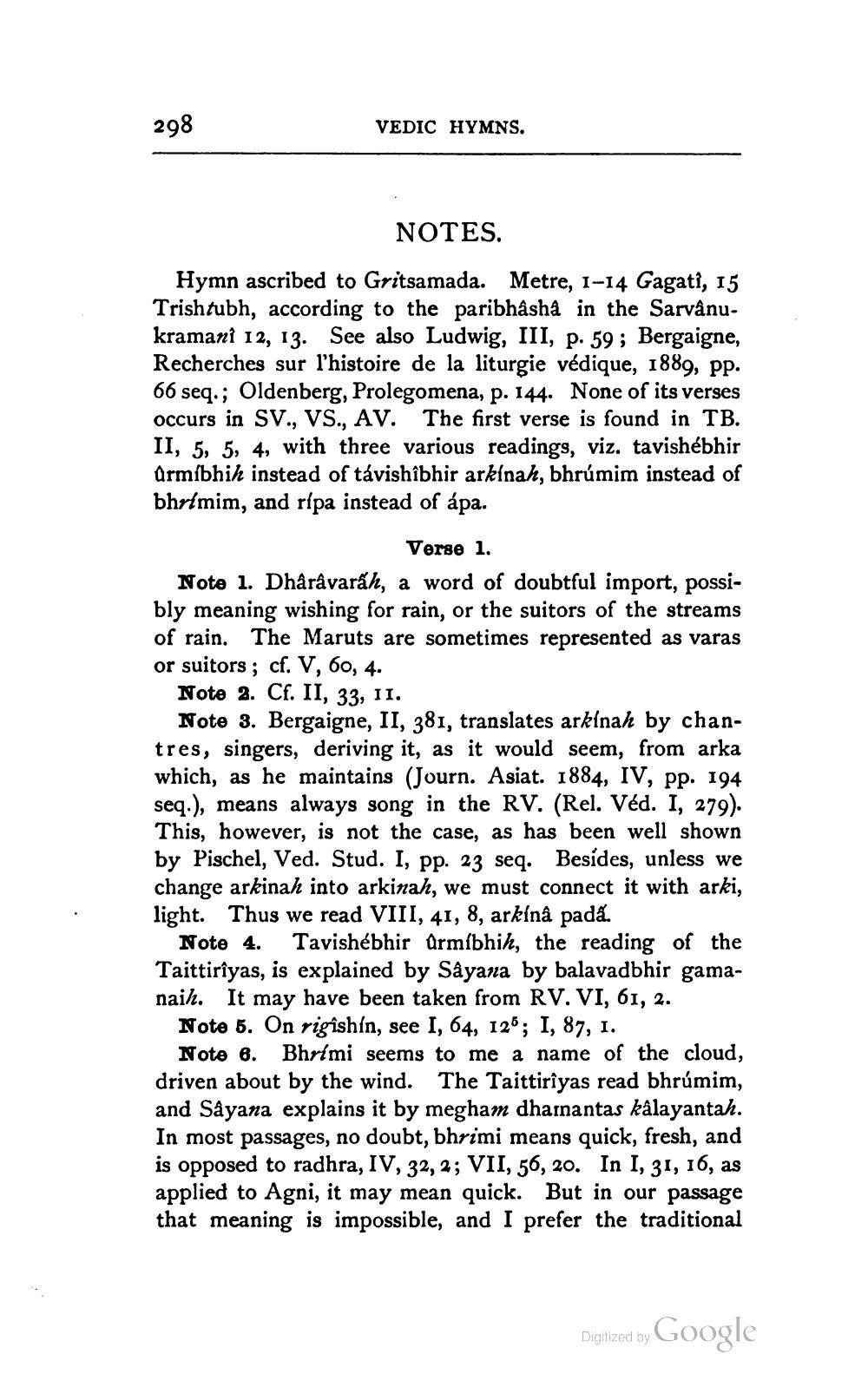________________
298
VEDIC HYMNS.
NOTES.
Hymn ascribed to Gritsamada. Metre, 1-14 Gagati, 15 Trishtubh, according to the paribhasha in the Sarvânukramani 12, 13. See also Ludwig, III, p. 59 ; Bergaigne, Recherches sur l'histoire de la liturgie védique, 1889, pp. 66 seq.; Oldenberg, Prolegomena, p. 144. None of its verses occurs in SV., VS., AV. The first verse is found in TB. II, 5, 5, 4, with three various readings, viz. tavishebhir Qrmíbhih instead of távishibhir arkinah, bhrúmim instead of bhrimim, and ripa instead of ápa.
Verse 1. Note 1. Dhåravaráh, a word of doubtful import, possibly meaning wishing for rain, or the suitors of the streams of rain. The Maruts are sometimes represented as varas or suitors ; cf. V, 60, 4.
Note 2. Cf. II, 33, 11.
Note 3. Bergaigne, II, 381, translates arkinah by chantres, singers, deriving it, as it would seem, from arka which, as he maintains (Journ. Asiat. 1884, IV, pp. 194 seq.), means always song in the RV. (Rel. Véd. I, 279). This, however, is not the case, as has been well shown by Pischel, Ved. Stud. I, pp. 23 seq. Besides, unless we change arkinah into arkinah, we must connect it with arki, light. Thus we read VIII, 41, 8, arkinâ pada.
Note 4. Tavishébhir Ormsbhih, the reading of the Taittiriyas, is explained by Sayana by balavadbhir gamanaih. It may have been taken from RV. VI, 61, 2.
Note 5. On rigishin, see I, 64, 126; I, 87, 1.
Note 6. Bhrími seems to me a name of the cloud, driven about by the wind. The Taittirîyas read bhrúmim, and Sayana explains it by megham dhainantas kalayantah. In most passages, no doubt, bhrimi means quick, fresh, and is opposed to radhra, IV, 32, 2; VII, 56, 20. In I, 31, 16, as applied to Agni, it may mean quick. But in our passage that meaning is impossible, and I prefer the traditional
Digitized by
Digilzed by Google




